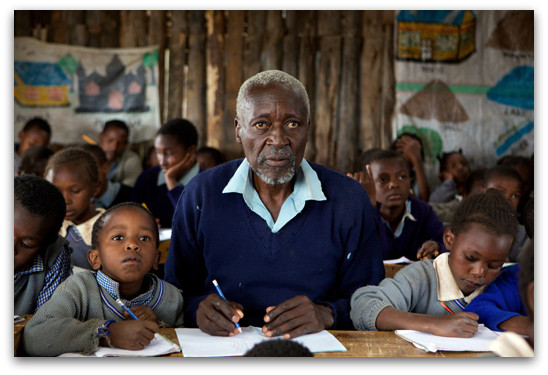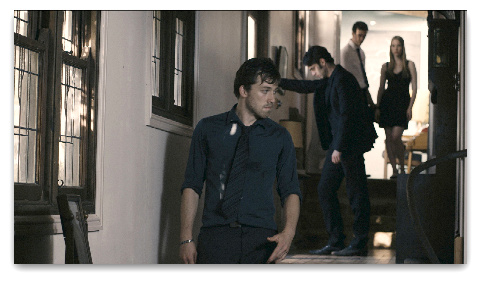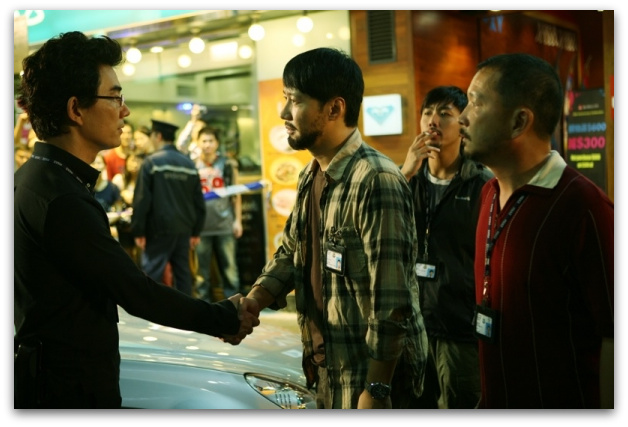
Do you learn more about yourself from watching films or is it just me?
How can the same film produce such vastly different reactions from each of us?
I wonder why TIFF09 did not nearly have this effect on me. I discovered a great deal about myself during this second round of Toronto’s Film Festival, TIFF10.
I found that a very bad film – in my assessment of course – awakens some of my worst moods with questions around the plot – or a complete lack thereof. I realize that a director may very well be as pleased with negative viewer reactions as with positive ones, for an artist aims to awaken the heart and soul enough to receive any reaction other than complete indifference but alas, why do I experience the moods and at times an utter disgust which is hard to shake?
I found that while I can appreciate many movies outside the norm, many styles of film making and many if not all foreign languages with subtitles, I cannot appreciate a movie lacking in a forward momentum. However agonizingly slow it may be, the story must move forward and there must exist a thrust to the plot – which implies first and foremost the necessity for a plot. Otherwise, I simply cannot remain engaged; can you?
Some can appreciate a terrible film for as little as three good lines of dialogue or one decent scene, however irrelevant to the story it may be! I need a compelling plot, a story worth telling and a film strong enough to raise meaningful questions or arouse powerful emotions. I can do without being awfully entertained; I realize film is made for many reasons and that many bizarre, odd, and crazy films exist with wild audience acceptance, proving how very different we are as a society and cultures in our tastes but can there not be at least one universal reason for all of us to appreciate every film?
I found that suspense does not necessarily equal enjoyment and that originality can be in poor taste- in such poor and bad taste as to outdo all the rest which came before it. I found that directors sometimes throw in several irrelevant and confusing scenes together for no good reason, perhaps combined with self-accolades on their own strike of “authenticity” but I consider that an abuse of one’s powers as a director in charge of making a good film. I found out that too much can be lost in translation; I learned this first hand by watching films in languages I understand with laughably poor subtitles.
I found out that shocking as it sounds, I do not mind lining up an hour or two in advance for a movie and partaking in Toronto’s hip movie lover crowd – or watching the same advertisement for thanking TIFF’s 2000 fab volunteers for the umpteenth time.
And I found out that I cannot recover from a very bad film as quickly and seamlessly as my husband or our other film buff friends. I forget a bad film much more slowly and I savor a good one for much too long.
All of these discoveries at first turned me off from returning to TIFF next year but now I wonder if there is a maturity scale and a learning curve to understanding film – and if one has to grow in one’s lifetime to learn to appreciate different films. Is it a waste of our time to watch films which have been scrutinized hard enough by film experts to make it to a festival as large and popular as TIFF or is it a worthwhile exercise?
Personal lessons aside, as I slowly put the very worst of TIFF behind – in my case, The Hunter (Iranian), Okie’s Movie (Korean) and The Girl in Yellow Boots (Indian), I take you on a tour for the best of TIFF. Here are my top 4 from TIFF10 and why:
1. The Debt

Packed in a theater with 800 people in the gorgeous Elgin Theatre Toronto, we had the pleasure of the brilliant director, John Madden himself, open the screening with a welcome and close with a sincere Q&A. From the start, this was promising to be an exquisite experience even if not a great film but it was to be both. The Debt is the story of three young Israeli private agents on a mission to locate and bring an evil Nazi doctor back alive from Berlin to Tel Aviv to face justice. John Madden said this was not based on an exactly true story but on true events – the reality of holocaust having been so dark and so horrid as to perhaps make this a lighter version of reality! Helen Mirren puts on a brilliant performance as always but I also loved this film for its original plot, its power to arouse deep questions and its terrible secret weighing so heavily on these young agents for the next 30 years as to never allow them a moment of peace. I thank John Madden for exposing us to world’s darkest hours in history through yet another unforgettable story, for excellent dynamics between the three lead roles, and for its brilliant unrelenting suspense from start to finish.
2. The First Grader

A film made for everyone because there is such a powerfully universal message in watching an 84-year old man want so desperately to learn how to read and write. When Kenya’s government makes education “free and available to all“, the ex-prisoner of war and ex-freedom fighter Maruge stands up from the depths of poverty, puts on his only clothes, and walks with other Kenyan kids to school. It was a real gift to have the director, Justin Chadwick, present the film to us and a shock to hear the amazing details behind the scenes – that the lead character was a retired Kenyan newscaster with barely any acting experience recommended by word of mouth from local community, that the children simply were from Kenya’s local every day population who participated beautifully and ever so naturally in the film making process, and that the entire film was based on an unaltered true story. A marvelously well-done film with unforgettable cinematography and a beautiful message about the love and power of education.
3. Blame

This Australian low-budget thriller was filmed in the great outback, in the height of heat for all 20 odd days of shooting. It show cases up and coming and talented Australian actors but most of all, it affords us a most engaging plot. The thriller turned more into a psychological drama with great dialogues and plenty of humor to spice things up as the five young college kids experience the complexities of staging a homicide. The victim is the piano teacher they wish to blame for the death of their best friend. Another lucky draw yet to have the director, Michael Henry, personally present the film. The last message from him after Q&A was easy to remember and simple to learn: Know your facts before you take the law into your own hands!
4. Fire of Conscience

Midnight Madness is a must-experience at least once at TIFF. Colin Geddes is the brilliant programmer responsible for this madness and of course, the Toronto audience is who makes the experience what it is. Still, I only watch one movie at midnight every TIFF and this year again, it was a great choice. Heroic bloodshed in the worst streets of Hong Kong between good cop and low-life criminals should be enough to make Fire of Conscience a great action movie; yet we have more reasons. The Chinese melodic music intertwined in these horrific bloodshed and fight scenes – and the ordinary stories of broken lives and hopes of each character are what made the film more than mere entertainment for me. Thank you Midnight Madness and until TIFF11!
TIFF is the best organized event for experiencing film in a city vibrant with movie lovers and film buffs. Even with a few bad choices, you experience movies you would probably never see otherwise and you would watch them before they are elsewhere released, you would learn from the minds behind the movies and perhaps even learn a thing or two about yourself. Here’s to wishing you the experience of a film festival!
 I am Farnoosh, the founder of Prolific Living. So glad you are here. My mission is to empower you to unblock your creative genius to live your dream life.
I am Farnoosh, the founder of Prolific Living. So glad you are here. My mission is to empower you to unblock your creative genius to live your dream life.